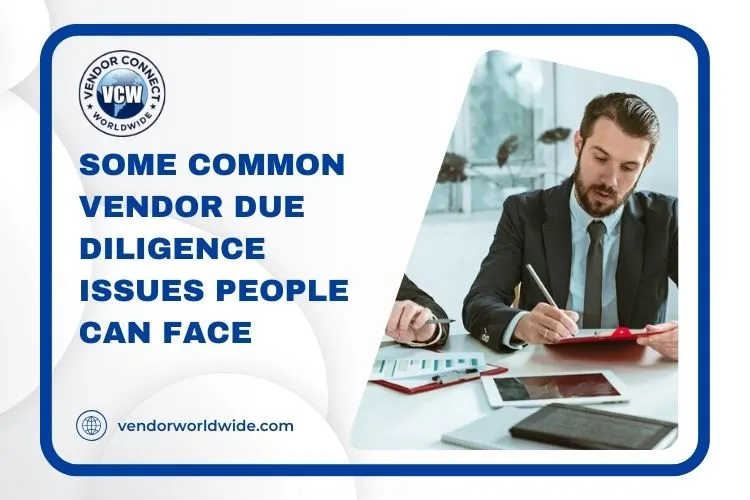
Modern corporate strategy must include vendor management, but it has its difficulties. Among all the other problems, one is issues related to due diligence. The process through which a company assesses the risk that a prospective or existing vendor poses to its operations is known as vendor due diligence. An essential part of vendor management is vendor due diligence. But still, people need help with doing it properly. But first, you need to do vendor registration for overseas, or else you cannot proceed.
This article discusses the common issues that people face while conducting vendor due diligence. So, let’s start the topic without further delay.
Common Issues People Face During Vendor Due Diligence
Lack of adequate technology
It has become all too normal for due diligence teams to use spreadsheets and email during the process. Only slowing down the already costly procedure—which costs an hour—will help. Teams may communicate more securely and efficiently by using advanced due diligence solutions instead of the laborious email trails that used to be a part of due diligence processes. As a result, the team will be better able to tackle the due diligence issues.
Financial instability
Inadequate evaluation of the vendor’s financial standing may lead to vendor insolvency and service interruptions. It is imperative to identify any substantial debts or liabilities that may affect the vendor’s stability.
Time constraints
When discussing the difficulties of due diligence, the expression “anything that drags gets dirty” loosely implies that the longer due diligence is completed, the more probable it is that the buyer and seller’s relationship will suffer. While this is somewhat accurate, due diligence aims to provide all accessible information, not only the information that becomes available within a certain time frame. The delayed completion of the due diligence process will make it difficult for managers on both sides of the deal to remain motivated.
Inadequate risk assessment
They are failing to assess the risks connected to subcontractors or other third parties that the vendor might depend on and failing to recognize possible financial, operational, or reputational risks associated with the vendor. Also, it would help if you did a vendor registration pre-qualification for the next procedure.
Lack of expertise
Finding the correct personnel to bridge the gaps between what your internal due diligence team can and cannot accomplish is one of the most difficult aspects of due diligence. For instance, it is improbable that a typical accountant could offer the degree of analysis required to examine the target company’s finances comprehensively. Naturally, your CFO can manage everything. Still, you’ll need them to be truthful about their capabilities because a lack of expertise in any one area of due diligence could lead to difficulties with the process.
Prioritize vendor by risk
All vendors should be subject to due diligence, although to a different extent. Too many businesses conduct the same due diligence on each vendor, which leads to excessive due diligence on lower-risk vendors and insufficient due diligence on higher-risk vendors. That is an adequate and efficient idea that will not work. This problem can be resolved by employing a risk-based vendor due diligence strategy. It concentrates your efforts in the most advantageous areas, which are also the areas that regulatory guidance emphasizes.
These are some of the most common issues people face while doing vendor due diligence.
